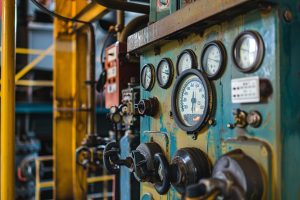Introduction:
It is fair to say that every component of marine automation in its own way is crucial for enabling vessels to work successfully and alike across the globe. Among them, heaters are one of the commonly excluded ones but play a vital role in many aspects that put up reliable operations. This blog aims to discuss heaters in marine automation their importance, where exactly they are applied, and how these enhance safety and efficiency in general maritime operations.
Importance of heaters within marine automation
Marine environments are nothing but harsh. Extremely high temperatures, high humidity, and salt water showers are just a few challenges that ships and their equipment have to put up with. In such an environment, it is very important to maintain optimum operating temperatures both for electronic systems as well as machinery. This is where heaters come into play.

The marine automation heaters keep the temperature of sensitive equipment within an operational range to prevent cold-temperature damage and to ensure that systems turn on reliably. From the control panel of a ship to the components of an engine, automated systems such as GPS and radar, heaters maintain consistent temperatures, extending equipment life while minimizing the chances of malfunction.
Heater Applications in Marine Automation:
Engine Room Heaters: The engine room is the heart of any vessel, and its temperature needs to be maintained as such. Installation of heaters serves to avoid condensation that may result in corrosion and electrical failures. Heaters ensure that the engine room is warm enough to maintain the engines and all other critical machinery ready at all times for efficient operation.
Control Panels and Switchgear: Almost all automation in marine relies on control panels and switchgear for end-to-end monitoring and management. These components are sensitive to temperature, and heaters maintain their operating range to avoid failures that may occur in extreme cold conditions.
Navigation and Communication Equipment: The navigating aids, communication systems, and other automated systems aboard ships need to function faultlessly, particularly during unfavorable weather. Heaters make sure that these systems do not fail due to low temperatures, so the crew may always depend on them.
Cabin heating may not be directly related to automation, but it is crucial since it concerns comfort temperature settings inside the living area of the crew for better well-being and efficiency. Heaters are mainly utilized in warming up the cabin, especially in cold regions, to be able to make the crew comfortable and stay alert.
How heaters enhance safety and efficiency:
These heaters are not only comfort features but also contribute majorly to safety and efficiency in marine operations. By preventing the failure of equipment at low temperatures, heaters reduce the possibility of costly repairs and the resulting downtime. In automated systems, to which even minor malfunction can have significant consequences, their contribution towards maintaining operational integrity cannot be overemphasized.
It ensures that all systems work together in harmony, adding to the overall energy efficiency of the vessel. When any piece of equipment operates within its design temperature, it uses less energy, and that means less fuel and fewer emissions—a factor that is crucially important in today’s marine operations, where sustainability is growing in importance.
Choosing the Right Heater for Marine Applications
Selecting the right heater for a marine application involves considering several factors, such as the size of the space to be heated, the environmental conditions, and the specific needs of the equipment or area. It’s important to choose heaters that are specifically designed for marine environments, as these will be built to withstand the unique challenges posed by life at sea.
The Benefits of Using Heaters in Marine Automation
- Enhanced Equipment Longevity: By maintaining optimal operating temperatures, heaters help extend the life of marine equipment. This reduces the frequency of maintenance and replacements, leading to cost savings for ship operators.
- Improved Safety: Temperature fluctuations can lead to equipment malfunctions, which can be dangerous in a marine environment. Heaters play a critical role in preventing such incidents by ensuring that all systems operate within safe temperature ranges.
- Increased Efficiency: Marine vessels that use heaters in their automation systems can operate more efficiently. For example, engines that are preheated before startup consume less fuel and experience less wear, leading to better fuel economy and reduced emissions.
- Environmental Protection: By preventing the solidification of fuels and other cargo, heaters help reduce the risk of spills and leaks. This is especially important in protecting the marine environment from pollution.
The Benefits of Heaters in Marine Automation
Improved Equipment Longevity: Maintaining ideal temperatures prolongs the life of equipment for marine devices. Thus, reducing the frequency of maintenance and replacement saves money for ship operators.
Safety: A malfunction can easily result from sudden fluctuations in temperature, which might be dangerous, especially at sea. Heaters are therefore essential in avoiding such incidents by ensuring that all systems work within safety temperature limits.
Increased Efficiency: A marine vessel with automation systems that include the use of heaters can work more efficiently, since an engine which is preheated before a start-up will use less fuel and suffer less wear; thus, fuel economy and lower emissions.
Environmental Protection: Preventing the solidification of fuels and other cargoes, heaters reduce the risk of spills and leaks. This is most important regarding the protection of the marine environment from possible pollution.
